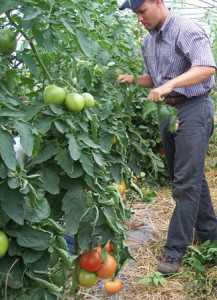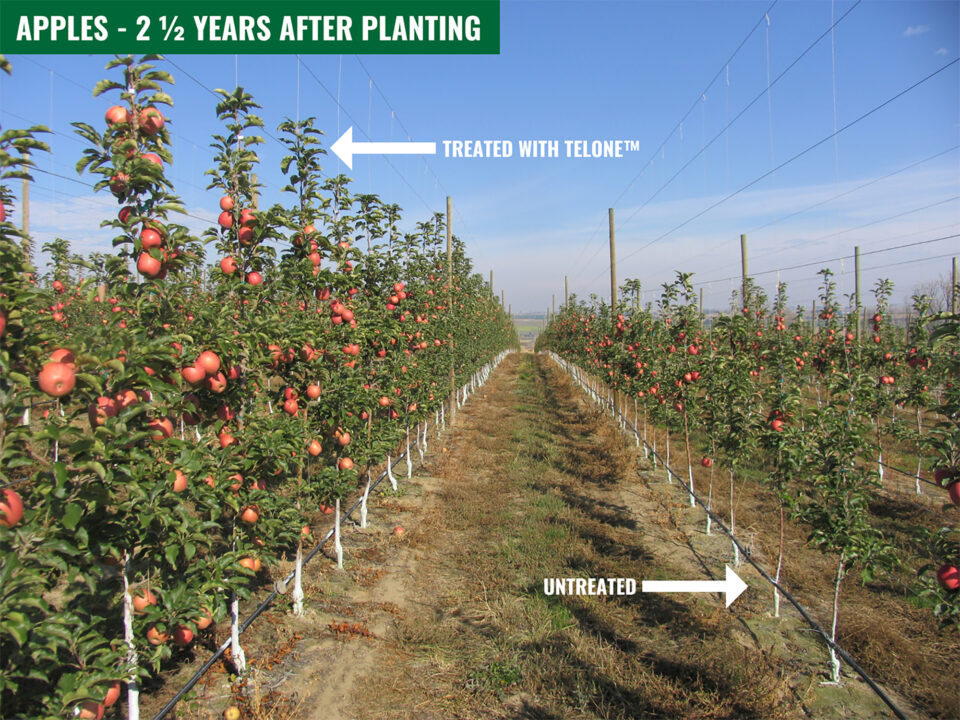Farm Research Helps New York High Tunnel Tomato Growers With Leaf Mold

New York-grown tomatoes in 2013 were estimated at a value of $32.4 million, according to the Cornell 2013 Vegetable Summary. The Northern New York Agricultural Development Program (NNYADP) has issued a new resource to help tomato growers cope with a fungal disease that has become increasingly troublesome for greenhouse and high tunnel growers across New York state.

Cornell Vegetable Specialist Judson Reid checks high tunnel tomatoes.
With NNYADP funding, Amy Ivy, a regional vegetable specialist with the Eastern New York Commercial Horticulture Program, developed a four-page fact sheet with leaf mold prevention and control tips for growers.
Leaf mold favors the higher humidity conditions found in greenhouses and high tunnels. The fungus spreads rapidly, defoliating plants, which severely reduces yield. The Cornell 2013 Vegetable Summary indicated that greenhouse and high tunnel production is on the rise in New York with structures ranging in size from one-tenth of an acre to more than 40 acres.
Fungicide sprays have not been effective in stopping the spread of leaf mold. Ivy suggests improving ventilation, plant spacing, pruning, and training to reduce the risk. The Leaf Mold in High Tunnel Tomatoes Fact Sheet identifies a number of leaf mold-resistant varieties of cherry, grape, and salad tomatoes, as well as the more popular varieties that are susceptible to the disease.
“Each year plant breeders are developing varieties with greater resistance to leaf mold, but the fungus continues to mutate, making it very challenging for growers. Planting several different varieties each season may help reduce the risk of crop and economic loss,” Ivy says.
Heirloom varieties of tomatoes are particularly at risk as none are leaf-mold resistant. The new fact sheet also includes photos of other types of tomato diseases that are leaf mold look-alikes. The farmer-driven Northern New York Agricultural Development Program funds on-farm research and technical assistance for farmers in the six northernmost counties of New York State: Clinton, Essex, Franklin, Jefferson, Lewis, and St. Lawrence.
Growers seeking assistance in diagnosing leaf mold or other problems in their crops may contact the local Cornell Cooperative Extension office.
Source: Northern New York Agricultural Development Program news release









